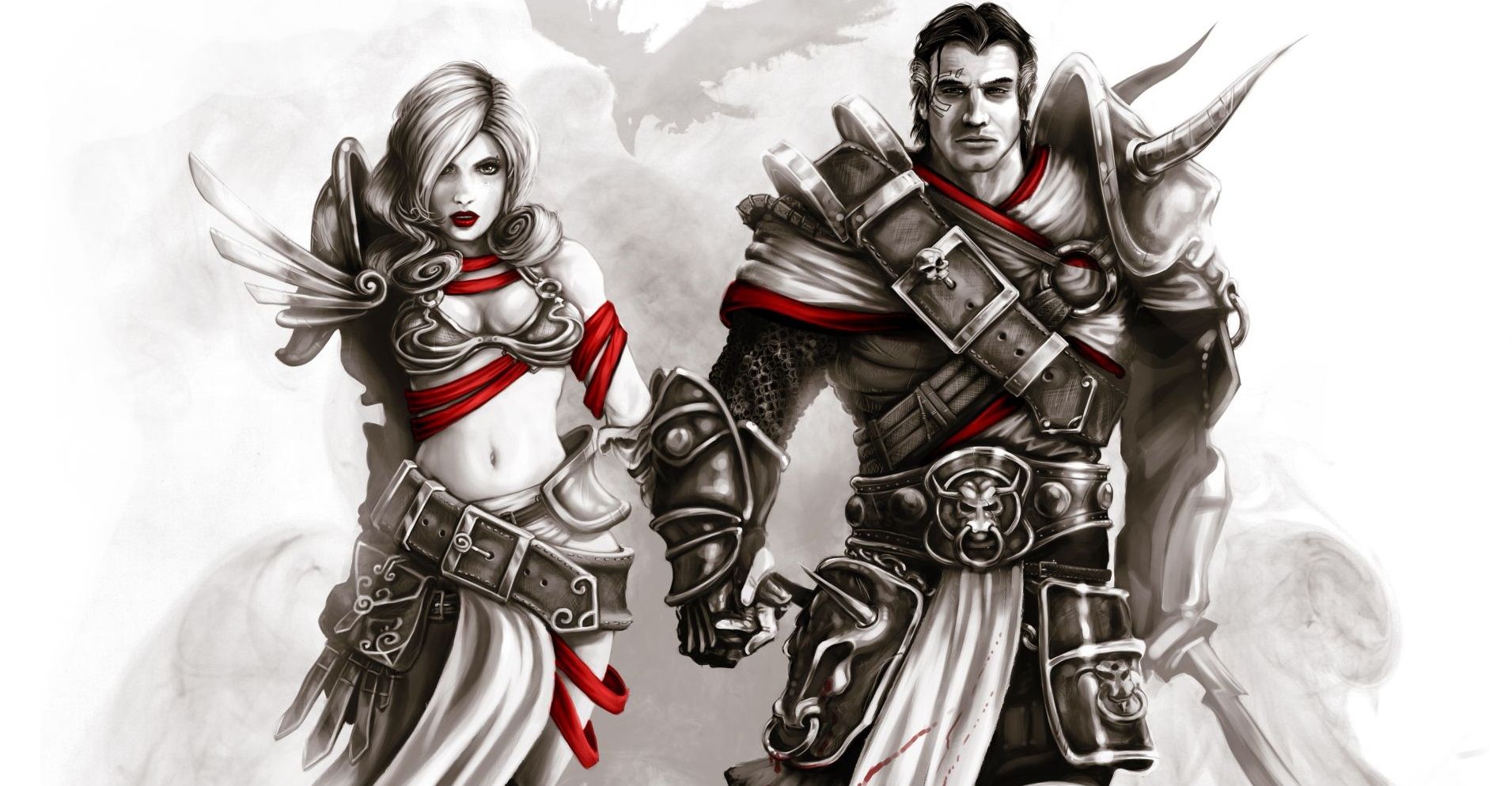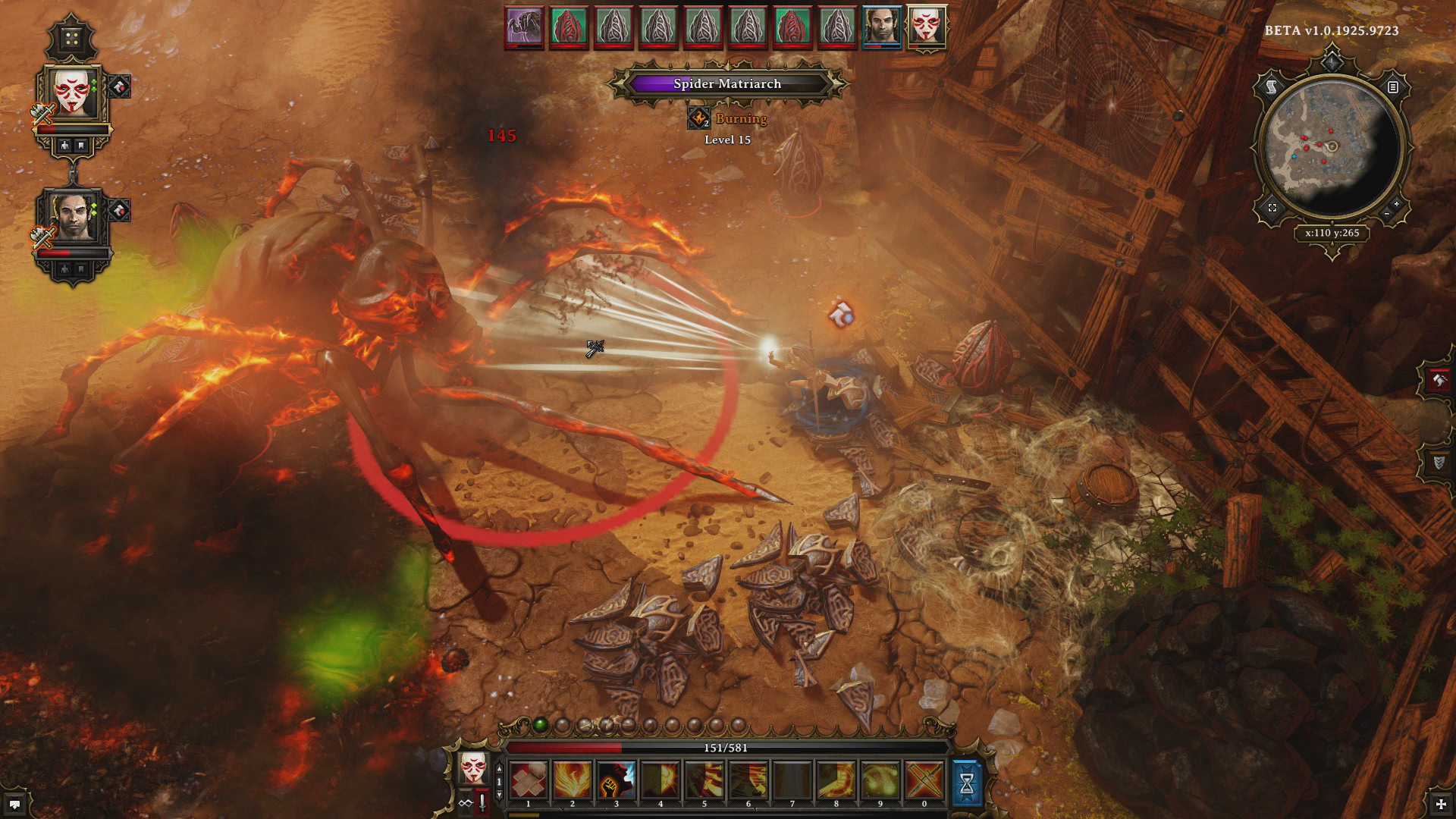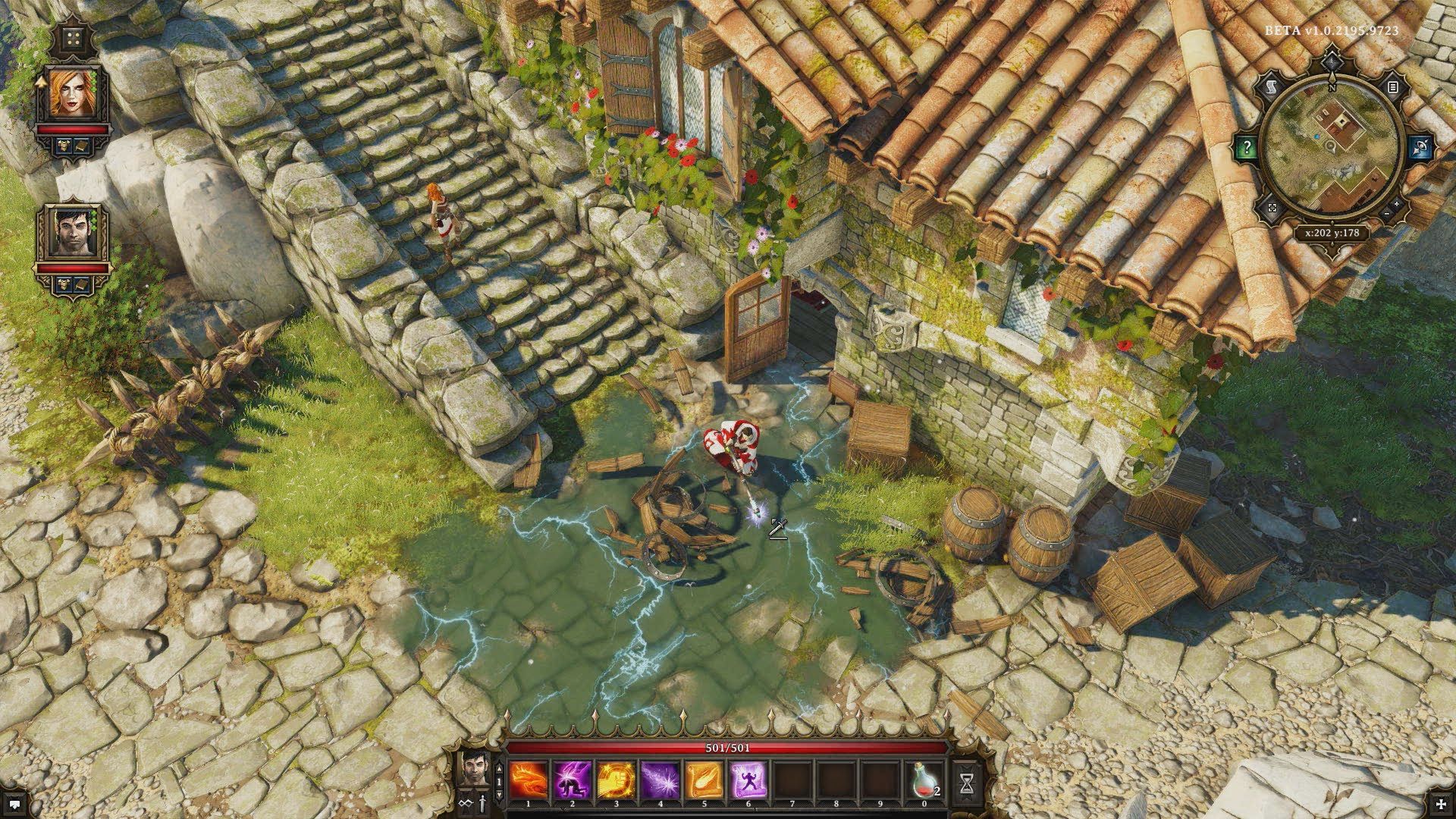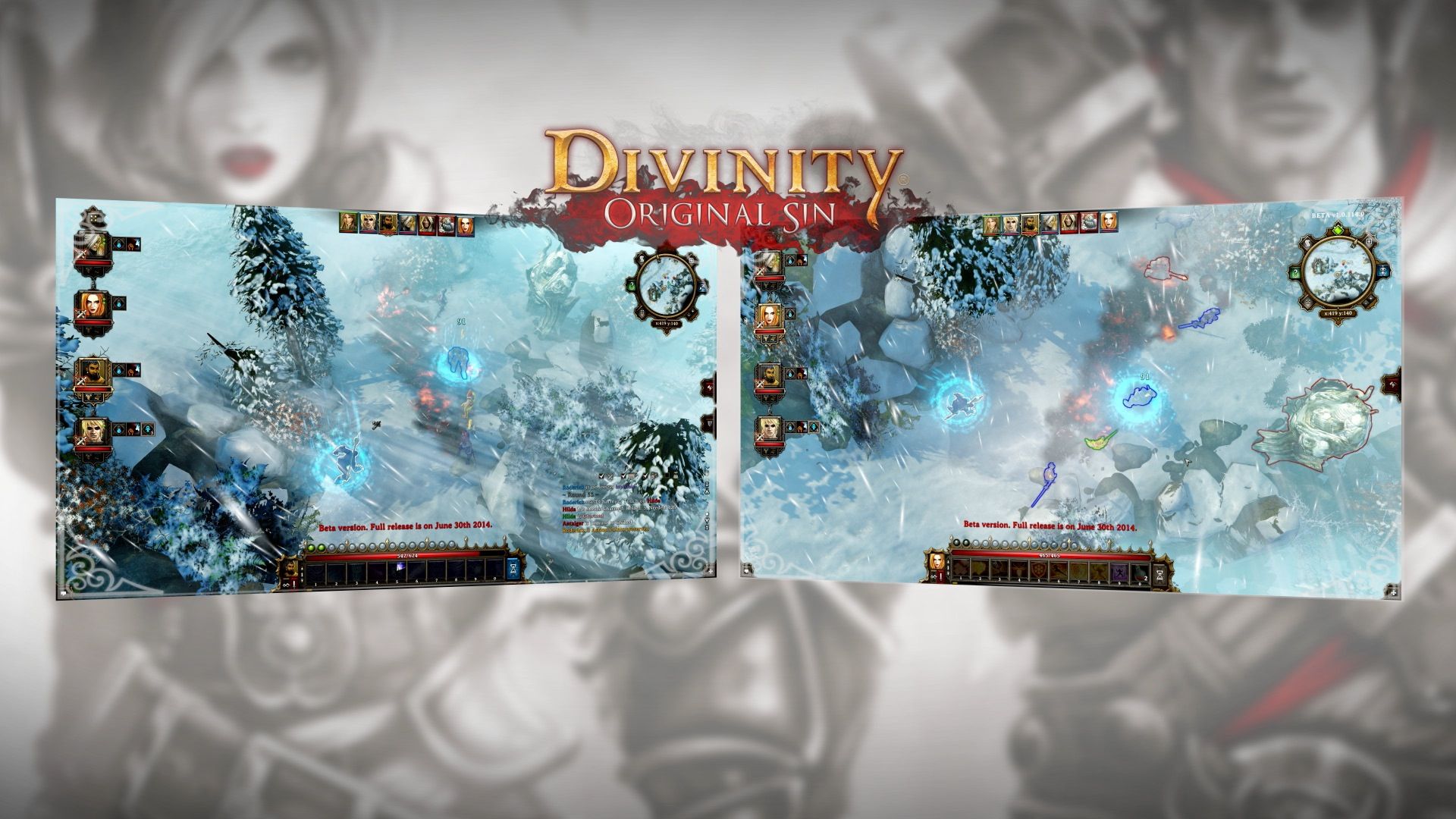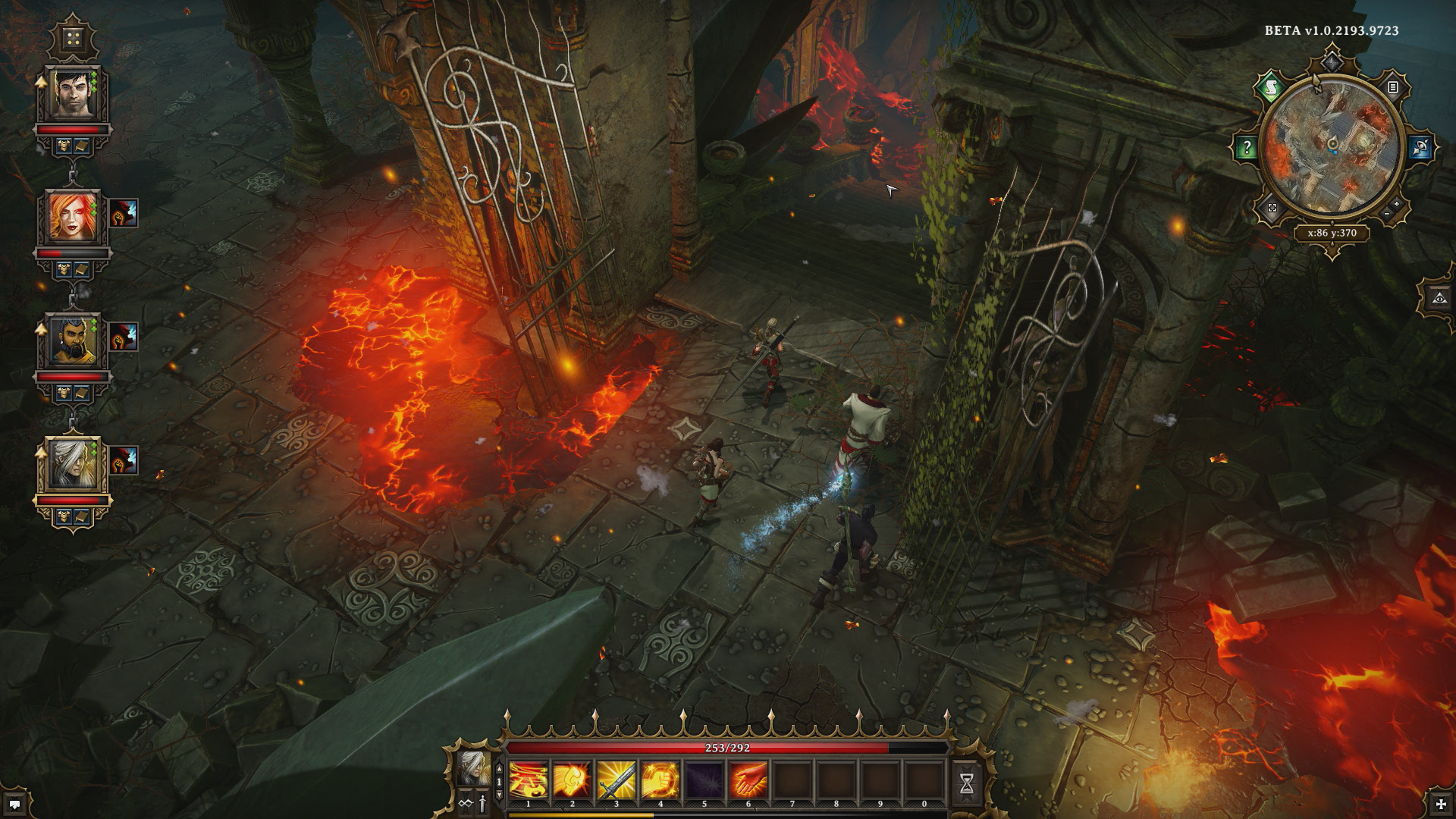Divinity: Original Sin growing from a rudimentary project into a highly successful Kickstarter campaign into the fully realized game of today has been a wild ride. It's good to finally get my hands on the actual title and see what the small team at Larian Studios could really do. And I wasn't exactly disappointed with the results.
Staring the game takes you to a short narrative on the history of the world. Magic wielders called Sourcerers used their power, called Source, to heal and help those in need. One day that same source of magic became corrupted and the Sourcerers fell to darkness, using their vast magic gifts to kill. Meanwhile, large scale Orc attacks -- even some led by humans -- have become increasingly frequent and villagers can barely hold their ground. Source Hunters soon came about, with the purpose of defeating both Sourcerers and any other threats that endanger the populace.
This is where your characters come in, as they are (depending on their backstory) either already Source Hunters or simply roped in for various reasons. After a brief and nicely illustrated cutscene, players will immediately launch into the character creation, which provides a good amount of customizing choices, including skin color and black hairstyles. This sounds like a no-brainer but a surprising amount of games' character creations lack black hairstyles which sucks when I want to give my character braids, dreadlocks or an afro.
Another notable feature is that you can make two characters, which is excellent for immediate co-op. Of course mere aesthetics isn't all the game has to offer, as you can also choose your starting class and two additional abilities, although I wish one of them was a trap-detecting perk as hidden traps in the field can easily be a cheap death in the beginning. Choosing proper builds early on is vital for progression, as certain tactics and options may or may not be available to you depending on which abilities, weapons and skills you learn. Another cool aspect about the title is that depending on the class, you'll get a nifty backstory for that character.
For instance, my Witch clearly has clashes with Source Hunters in the past but they managed to negotiate a cease-fire in exchange for her aid. Meanwhile my Knight, now an honorable Source Hunter, has a bone to pick with those responsible for the wrongful execution of the entire House of Sturmgrave, the house in which she and her parents belonged.
After your masterpieces are complete, you then jump right into the story. I love that cutscenes are very rare and you learn about what is happening in the world as it naturally unfolds. You two characters will often chat with each other, alerting you to possible danger, plot happenings and general things to look out for while traveling. Sometimes you may even have to role play decisions between your party members.
A good example was when my two ladies came across a crying Orc mourning the death of his brother (you hear him long before you actually spot him). After speaking to him at length, you find out that his brother has been buried with excellent armor, as per Orc tradition, and that it can be yours for the taking if you garner the grave's location from him. Naturally my Knight was more honorable than that but the Witch saw no issue with a little ransacking (it must be noted that each character's response is completely up to you). They then tried to Charm each other but reached an impasse and had to actually play a game of rock-paper-scissors to decide, which my Knight badly lost. After another bout of R-P-S with the Orc that I actually won, he led me right to the grave.
Depending on the choices made, party members get certain bonuses to different stats, including those that affect how NPCs will perceive and interact with them. Those bonuses also affect your ranking on stats that give you advantages during the little R-P-S matches.
What I also love about quests is simply how interesting they are. The NPCs' unique personalities and issues combined with the variety of objectives makes for fascinating interactions. Taking it further, objectives and end results (as stated before) can change depending on your characters' decisions, making for numerous unique outcomes. However, the lack of hand-holding can also be troubling when you spend an hour trying to figure what to do next in a quest or how to get past such-and-such obstacle. It certainly reminds you of old-school RPGs that refuse to interfere with your exploration at any level, which makes for a very unique experience.
Gameplay itself is polished and the controls are surprisingly easy to pick up, but you will be punished if you're underleveled. I wish there were more enemy encounter initially, as I found it a bit challenging to level up properly in the beginning.. Combat is turn-based, giving you unlimited time to strategize in battle. Each party member is given a certain amount of action points per turn and different actions -- such as movement, physical skills and spell casting -- uses a different amount. Learning how to wisely spend points is vital to smart fighting, especially in early game when you don't have much to use.
Target range is very important when using abilities in battle, which is why understanding the maximum range of attacks versus the party members' position is necessary. Positioning is further compounded when considering that in order to move during a sorte, you must use action points. Now throw in the variety of spells (healing, elemental, slow damaging, buffs/debuffs), the many physical abilities with their own unique properties and uses, and you have an incredibly strategic battle system.
There are also plenty of other features to consider, such as perks that aid in and out of combat, defensive and ailment checks based on that characters resistances, which stats to allocate points to and, most importantly, the ability to greatly impact and control the environment using magic and weapons. For example, you can use fire magic on oil puddles to ignite enemies and give them the burning status or casting a rain spell to put out a ship on fire.
Single player is where I rule, but if isn't your thing, feel free to take part in some multiplayer action. You can choose between offline and online MP and parties of up to four characters can join in the fun. The community is strong if you go the online route, although roping a friend to tag along with your own misadventures while RPing quests and decision making holds its own charms.
Visuals are stunning, especially if you crank it up to ultra settings. The textures, lighting, vibrant colors, particle effects and animations are all excellent. Original Sin also has quite the soundtrack, really putting that orchestra stretch goal to good use. A bit of a tangent, but I was pleasantly surprised with how gruesome and detailed the character deaths are, particularly when they are burned by a powerful spell or trap and turned into a pile of ashes. The screams are especially convincing and sent chills down my spine every time I heard them.
NPCs also have pretty good voice acting as well, which helps to sell each quest and story encounter. The fact that they also hold their own personalities and alliances that are directly affected by your actions adds to their humanity.
A major issue I did have concerns the menu interface: it's a bit too clunky and takes quite a while to become accustomed to. This also leads to another annoyance: when you need to present an important item, the character holding it must be the current party leader (aka the one initiating conversation) for it to given to the NPC. In other words, your lazy allies don't like handing over items when they're not the focus of conversation, which is hilarious but a bit bizarre. The journal is also pretty useless, as the tips and information contained within do very little to aide you in your journey.
Divinity: Original Sin is a western RPG that dives head first into the nostalgia pool; while it doesn't exactly reinvent the contents, it manages to make its own ripples. Larian Studios put a lot of love and polish into this title and it shows in nearly every facet, from the characters to the world building to the graphics to the finely tuned combat system. While it has a few hiccups, they are nothing compared to the sheer wonder and joy players will experience exploring and influencing this vast land.
As an extra bonus, check out this awesome Let's Play series of Divinity: Original Sin to see how both the game itself and co-op works (thanks Special Attack's Gaming Channel!).
//www.youtube.com/embed/ZpJJM_pCoJ4
Divinity: Original Sin
- Developer(s)
- Larian Studios
- Publisher(s)
- Larian Studios , Focus Home Interactive
- Genre(s)
- RPG

